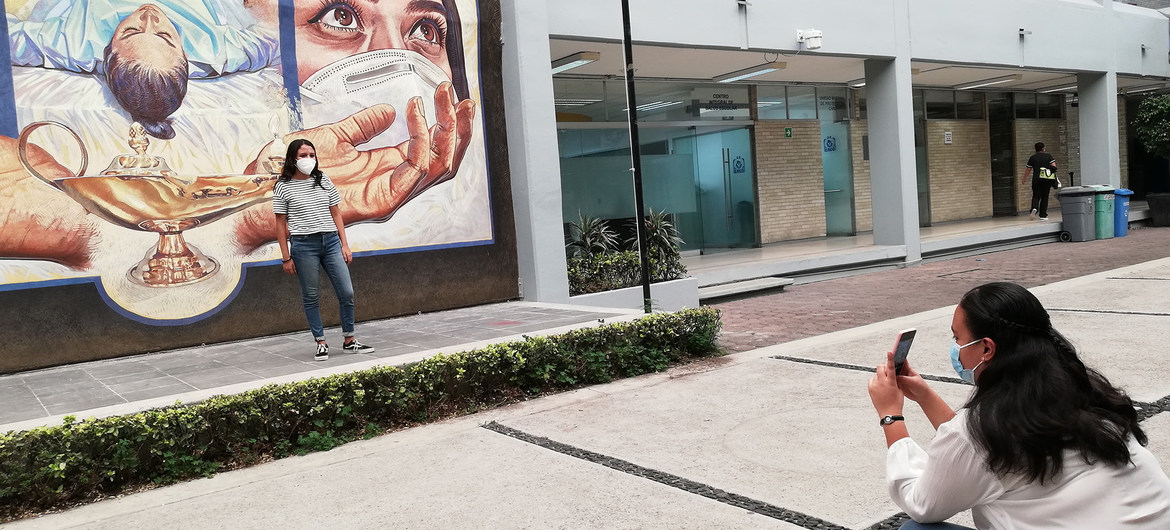18 August 2021 Health
During Wednesday’s World Health Organization briefing on COVID-19, WHO chief Tedros Adhanom Ghebreyesus called for funding to fight the spread of the deadly Delta variant while also asking wealthy countries to suspend plans to provide booster shots.
International efforts to slow the COVID-19 Delta variant have been hampered by its particularly virulent nature, which has led to hot spots of hospitalizations and deaths throughout regions with low vaccination levels and limited public health measures.
Tedros insisted that there are solutions to the challenge, such as the Strategic Preparedness and Response Plan.
However, this plan urgently needs an additional $1 billion dollars. Similarly, a $7.7 billion appeal has been launched to scale up the ACT-Accelerator initiative, which is providing testing, treatments, vaccines and protective equipment for health workers, along with enhanced research and development into the next generation of health tools.
Vaccine injustice: ‘Shame on all humanity’
In response to plans by some countries to provide booster jabs, Tedros issued a reminder that only 75 percent of all vaccine supply has gone to just 10 countries, and that low-income countries have only vaccinated around two percent of their populations.
Given the huge inequity, the top WHO official called for a temporary moratorium on boosters, to ensure that supplies can be shifted to those countries experiencing major spikes in infection.
Whilst the WHO has convened health experts to debate the available data on the efficacy of boosters, the priority remains to provide first shots, and protecting the most vulnerable.
“The divide between the haves and have nots will only grow larger”, he declared, “if manufacturers and leaders prioritize booster shots over supply to low- and middle-income countries.
The WHO chief said that in an interconnected world, in which the COVID-19 virus is mutating quickly, national leaders need to commit to vaccine equity and global solidarity to save lives and slow down variants.
“Vaccine injustice is a shame on all humanity”, he added, “and if we don’t tackle it together, we will prolong the acute stage of this pandemic for years when it could be over in a matter of months”.
A significant jump in infections
Meanwhile, in remarks to the press at the weekly Pan-American Health Organization (PAHO) COVID-19 briefing, Carissa F. Etienne, director of the UN regional agency, said that, over the last week, 1.4 million COVID-19 cases and nearly 20,000 deaths have been reported in the Americas.
Ms. Etienne singled out North America and Mexico as regions of particular concern, with cases in the United States increasing by more than a third, and Canadian cases by more than half. In Mexico, more than two-thirds of states have been deemed at “high” or “critical” risk as hospitals fill with COVID-19 patients.
The Caribbean region is also seeing a rise in infections and deaths: in Jamaica cases rose by 49 percent and deaths increased by 70 percent, while steep rises are being reported in in Dominica, Martinique and Guadeloupe.
Despite these figures, just one in five people have been fully vaccinated against COVID-19 across the Latin America and Caribbean region, and in some countries, fewer than five percent of people have been fully vaccinated.
Avoid complacency
The news was more positive in South America, with most countries seeing a drop in new cases.
For the first time since November, hospital occupancy in Brazil is lower than 80 percent across all states.
However, noting that transmission remains very active, Ms. Etienne warned against complacency.














